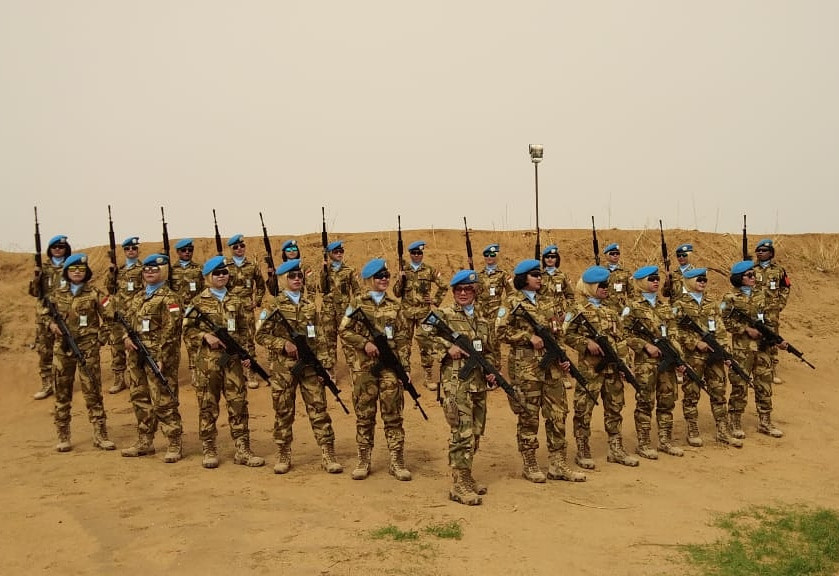Popular Reads
Top Results
Can't find what you're looking for?
View all search resultsPopular Reads
Top Results
Can't find what you're looking for?
View all search resultsWhy there are so few women in UN peacekeeping
The call for more women participation in United Nations peacekeeping is complicated by a myriad of social and political challenges.
Change text size
Gift Premium Articles
to Anyone
I
t was 2017 and Lt. Col. Revila Oulina was the only female Indonesian peacekeeper at her camp in Darfur. In the 40-degree heat of Al-Fashir, the capital of North Darfur, Sudan, she was on a year-long mission as chief of civil-military coordination at the headquarters of the United Nations–African Union Mission in Darfur (UNAMID).
She longed for home in Jakarta, Indonesia, where her husband and two young sons were awaiting her return. But as the highest ranking female peacekeeper in a UN mission where only 3.6 percent of military personnel were women, she had an important role to fill.
Revila is part of a new generation of female peacekeepers tasked with enhancing the effectiveness of United Nations peacekeeping in conflict regions, particularly in dealing with victims of sexual violence.
“Women peacekeepers, perhaps because they are also mothers, sisters and daughters, connect with the local population,” said Anuradha Saibaba, a legal expert at the International Committee of the Red Cross’ regional delegation for India, Nepal, Bhutan and the Maldives. “We have seen an increased response of the local community to interact more when there are women peacekeepers and police around.”
Women constitute just under 6 percent of the total UN peacekeeping force today. The problem begins from the low proportion of female peacekeepers being deployed by troop-contributing countries, including Indonesia.
While the UN encourages countries to deploy a force that is at least 15 percent female, the number of women in Indonesia’s peacekeeping contingent hovers at just 4 percent, according to Lt. Gen. Joni Supriyanto, chief of the general staff of the Indonesian Military. Joni expressed a commitment to raising the number to 10 percent on Wednesday at an international conference on peacekeeping in Jakarta.
In recent years, peacekeeping has gained a notorious reputation for incidents of sexual violence committed by peacekeepers against civilians, including reports of peacekeepers bartering for sex with humanitarian aid. Over 200 people reported sexual violence and exploitation committed by UN personnel in 2018, according to a 2019 report by the UN secretary-general’s office.


















